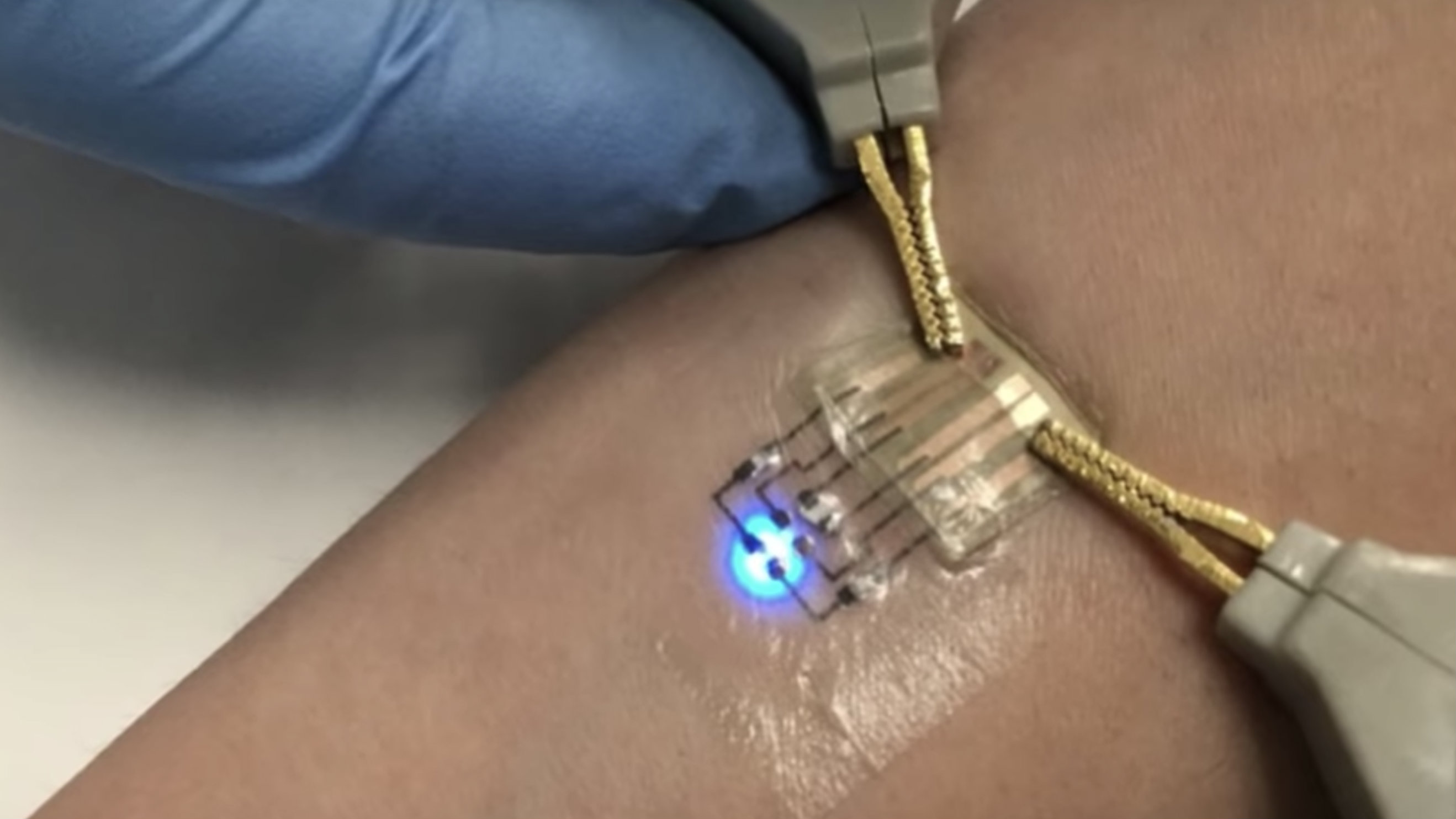Temporary electronic tattoos could transform healthcare
Not your grandma's tattoo

Wearable tech is becoming an increasingly popular way to monitor our health, particularly through the use of heart-rate measuring smartwatches like the FitBit or the Apple Watch.
While these devices are pretty convenient already, wouldn't it be great if you could keep an eye on your health without having to wear anything at all?
Well, that soon could be a reality, thanks to the groundbreaking work of researchers at Carnegie Mellon University in Pennsylvania, who have created a durable temporary electronic tattoo that could one day be used to measure everything from your blood sugar levels to your heart rate.
Just add water
Electronic tattoos are nothing new, but in the past, the manufacturing and application process was extremely slow, requiring the user to have conductive ink painted directly onto the skin, or to wear a conductive film like the DuoSkin.
The laborious process of making electronic tattoos is one reason why they haven't yet taken off in the same way other kinds of wearable tech has - and that's what the CMU researchers hope to change with their new method.
Co-author of the study Mahmoud Tavakoli explained the breakthrough to the university's website: "We showed for the first time that inkjet-printed patterns of silver nanoparticles can be sintered [formed using heat or pressure] at room temperature using the gallium indium alloy. Removing the need for high temperature sintering makes our technique compatible with thin-film and heat sensitive substrates."
Keep your cool
By removing the need for extreme heat in the manufacturing process of these electronic tattoos, the researchers have found a way to apply them to a fine film that can be adhered to the skin using a damp sponge - much like the decorative temporary tattoos you may remember from your childhood.
Sign up for breaking news, reviews, opinion, top tech deals, and more.
This makes them far more robust, flexible, and easy to use, meaning electronic tattoos could soon be used by anyone - whether they're kitted out with chemical sensors to detect changes in the skin associated with blood sugar levels, or even sensors to detect the users' heart rate.
If these newly durable electronic tattoos are to have medical applications, however, the likelihood is that we we'll have to wait through a long period of testing before they are approved for use by regulatory bodies.

Olivia was previously TechRadar's Senior Editor - Home Entertainment, covering everything from headphones to TVs. Based in London, she's a popular music graduate who worked in the music industry before finding her calling in journalism. She's previously been interviewed on BBC Radio 5 Live on the subject of multi-room audio, chaired panel discussions on diversity in music festival lineups, and her bylines include T3, Stereoboard, What to Watch, Top Ten Reviews, Creative Bloq, and Croco Magazine. Olivia now has a career in PR.